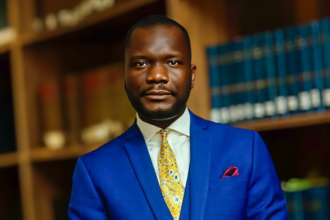
Striking a balance between public interest and individual rights under the 1992 Constitution of Ghana is a herculean task for the judiciary. The Judiciary’s role, among other things, is to intervene when some of the laws enacted by Parliament overlap certain individual (minority) rights. Take, for instance, Asare vs AG (2012) GHASC 31 or DLSC2681, a citizen invited the Supreme Court to cure a mischief in the Citizenship Act, 2000 (Act 591) which purported to give a Minister the power to indirectly amend the Constitution 1992. Dr. Date-Baah, J.S.C. in his erudite majority decision asserted that:
‘In addition, I am inclined to grant the fifth declaration to the extent that it makes void s. 16(2)(m) of the Citizenship Act 2000 (Act 591) which I consider to be void as conferring excessive, unnecessary and unreasonable power in excess of Parliament’s authority on the Minister of the Interior to ban dual citizens from holding any public office that the Minister may prescribe. This delegated Ministerial authority is subject to abuse and would not have the protective process of Parliamentary debates which attend the passage of a Bill into an Act.’
The plaintiff in Derrick Adu-Gyamfi vs. The AG, being of the view that certain provisions of the Companies Act, 2019 (Act 992) have the effect of trampling on the fundamental rights of qualified persons who have the right to be appointed directors commenced this action for these substantial reliefs, among others:
- A declaration that the first parts of subsections 2(h)(i) and 2(h)(ii) of section 13 (on an application for incorporation) of Act 992 which prohibit a person charged with an offence involving fraud or dishonesty or charged with an offence relating to the promotion, incorporation, or management of a company from becoming a director of a company, is inconsistent with the letter and spirit of Articles 15(3) and 19(1), 19(2)(c) of the Constitution 1992.
- A declaration that the first parts of subsections 2(a)(i) and 2(a)(ii) of section 172 of Act 992 which prohibit a person charged with a criminal offence involving fraud or dishonesty or charged with a criminal offence relating to the promotion, incorporation, or management of a company from becoming a director of a company, is inconsistent with the letter and spirit of Articles 15(3) and 19(1), 19(2)(c) of the Constitution 1992.
- A declaration that subsection 1(c) and 1(e) of Section 177 of Act 992 which restrains a person culpable of a criminal offence whether convicted or not in relation to a body corporate or who is the subject of an ongoing investigation by a criminal investigating body or by the Registrar or the equivalent in a foreign jurisdiction from being a director except with leave of court, is in direct contravention to the letter and spirit of Articles 15(3) and 19(1); 19(2)(c) of the Constitution 1992.

Derrick’s basis for his reliefs is simply that, being charged with or investigated for a criminal offence cannot be equated to having been convicted, hence the said provisions contravene the right of individuals to be considered innocent until proven guilty as the Constitution mandates in Article 15(3), 19(1) and (2)(c).
The Attorney General as expected implored the court to refuse the reliefs on the grounds that, owing to the banking and financial sector crisis between 2017-2018 it had become necessary to put in place measures to protect investors and ordinary Ghanaians. Also, there is always a need to balance the rights of the individual against the public interest and the addition of the words “charged with” in those sections is to prevent unscrupulous persons from being involved in running companies as they may thereby take advantage of unsuspecting members of the public and defraud them.
The court in a unanimous decision held as follows:
From the foregoing, we are of the view that the words “charged with or” which appear in sections 13(2)(h)(i); 13(2)(h)(ii) and; 172(2)(a)(i) and (ii) of Act 992 are inconsistent with the letter and spirit of Article 15(3), 19(1) and (2)(c) of the 1992 Constitution and are accordingly void. The said words are unconstitutional and are hereby struck down.
We are however unable to agree with the Plaintiff’s submission that Section 177(1) (c) and (e) are in breach of the constitutional provisions on fair hearing and presumption of innocence. We do not find the said provision to be inconsistent with Article 19(1) and 19(2)(c) and 15(3) of the 1992 Constitution. Consequently, the reliefs sought by the Plaintiff in respect of section 177(1)(c) and (e) are dismissed.
Pwamang JSC, in his concurrent decision, summarized the reasoning behind the court’s decision in these few words:
“As rightly submitted by the defendant, sections 13(2)(h)(i) and (ii) and 172(2)(a)(i) and (ii) do not state expressly that a person charged with a criminal offence involving dishonesty or in connection with the formation or management of a company shall be deemed guilty of the offence if he wants to become a director of a new company.
Nonetheless, the effect of the sections is that if a person has merely been charged with such offence in the preceding five years, then he is automatically barred by the sections from becoming a director of a company. The sections require a person who intends to be a director of a new company to furnish to the company and the Registrar of Companies a statutory declaration to the effect that she has not been charged with the types of offences stated in the preceding five years. This means that if you have been so charged then you cannot provide the statutory declaration required. By section 172(2)(a)(i) and (ii), failure to furnish the Registrar of Companies with the required statutory declaration shall result in the refusal of your application to become a director without any discretion of the Registrar of Companies in the matter. Thus, on account of merely being charged with a criminal offence involving fraud or in connection with the formation or management of a company you are made to suffer sanctions for the offence though you have not been convicted of the criminal offence by a court of law.
What it suggests is that contrary to what the Constitution has said in article 19(1) and 19(2)(c), the charged person in this instance is treated as if she were convicted of the criminal offence already. Adding the words “Charged with or” to “convicted of” in the sections equates the two situations and automatically bars persons in either situation from becoming directors of companies. Automatically barring convicted persons from becoming directors is understandable and the plaintiff is not complaining about that.
… In the circumstances, there can be no justification for undermining these fundamental provisions of our Constitution in the name of preventing fraudulent persons from managing companies.
…So long as it is the court that is determining the criminal culpability of the person challenged, on the standard of proof beyond reasonable doubt, no provision of the Constitution is contravened. Accordingly, on a true and proper interpretation of section 177(1)(c) and (e), it is not correct to say that the person challenged would be sanctioned without a court having found her culpable.”
THREE NOTE-WORTHY IMPLICATIONS OF THE DECISION IN DERRICK’S CASE:
- Under subsections 2(h)(i) and 2(h)(ii) of section 13 of Act 992, an application for incorporation may include the names of persons who have been charged with a criminal offence involving fraud or dishonesty or charged with a criminal offence relating to the promotion, incorporation, or management of a company in the 5 years preceding the said application as the prospective directors of the company.
Thus, prospective directors are still required by the Act to submit a Statutory Declaration to the company to be subsequently filed with the Registrar, but only in declaration of their conviction or otherwise of the offences stated in the preceding 5 years.
- Also, under subsections 2(a)(i) and 2(a)(ii) of section 172 of Act 992, an existing company may appoint persons charged with a criminal offence involving fraud or dishonesty or charged with a criminal offence relating to the promotion, incorporation, or management of a company in the preceding 5 years as directors. These persons shall however submit a Statutory Declaration to the company to be subsequently filed with the Registrar in accordance with Act 992, but only in respect of a declaration of any conviction of the offences stated in the preceding 5 years.
- A person under 1 and 2 above can nonetheless be restrained under section 177 (1)(c) and (e) from being a director of a company by the court suo motu, or upon an application to the court, except with leave of court. Thus, for a prospective director who is subjected to proceedings under this section and found culpable, the court has the discretion to restrain the said person for a particular period from being a director. However, it can be reasonably inferred that this individual may not be restrained beyond 5 years as the sanction for a first-time conviction is limited to the same period by the Act.
Overall, the decision in Derrick Adu-Gyamfi v The Attorney-General is a testament to the crucial role the Judiciary- especially the Supreme Court- plays in safeguarding the democratic and Constitutional rights of Ghanaians, particularly in the recognition and enforcement of fundamental human rights of Ghanaians. It entrenches and affirms the Constitutional right of the Ghanaian that he is to be presumed innocent until proven guilty.
Kwasi Twum Agyapong, A contributory writer, is a legal practitioner with Sam Okudzeto and Associates











